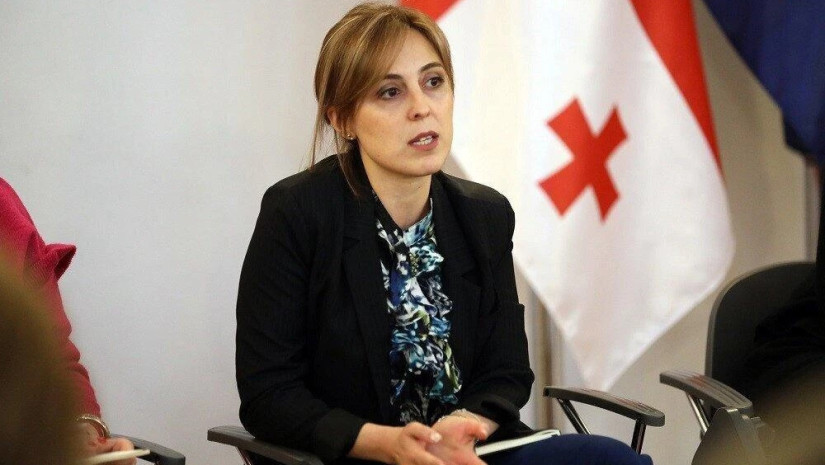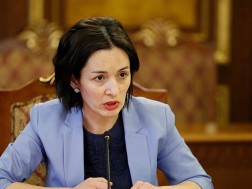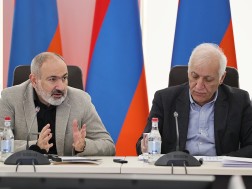It’s been almost half a year that the Vocational Skills Agency has been jointly established by the Ministry of Education and Science of Georgia and the Chamber of Commerce and Industry to facilitate the introduction of vocational programs in the labor market, support innovative training, improve competition and provide better employment opportunities.
Tamar Kitiashvili, Head of the Agency talked to Analytics with Elene Kvanchilashvili about the goals of the agency, its functions and management model.
What is the main challenge that the Agency wants to tackle?
The problem that you have been highlighting together with the private sector – lack of professional staff – the agency attempts to lay a solid foundation for public-private partnerships and human capital development in the country. We have specific instruments and mechanisms at play to tackle this problem in the long run.
In February you were talking to our channel and said that you intended to create sector based organizations. Could you please update us on this dynamic. What we Google so far is still Agro-Duo in the field of agriculture which has been set up with Swiss support back in 2019. Are there some new organizations like that?
Agro Duo doesn’t have a formal status because back then we didn’t have a legal framework for that. Agro Duo functions by self-initiative and we regard it more as a pilot project. Now we have elaborated a formal legal framework and soon we will have government’s resolution regulating vocational training and knowledge-sharing and in this resolution a primary role is delegated to these sector based organizations. There will be a legal basis for such organizations to take up their responsibilities.
What type of responsibilities?
We will have a national qualification standard for different kinds of vocational jobs. Based on this national standard, together with vocational colleges we will prepare programs and these programs may be dual which means that they may be executed together with the private sector. Field oriented organizations will be responsible for the coordination and quality of the whole process. What is most important in my mind is that these organizations will put a final seal on the qualification assigned to graduates. The exam process will also be subject to the employer filter. This means that business is actively involved in all the stages starting from policy making and ending with certifying a graduate.
How does this public-private partnership work?
These organizations represent the voice of different sectors. Since sector-based organization unites all the private entities that are gathered in a specific sector, the doors will always be open for the interested businesses to join.
However, the case today is that most of the employers do not even know that such an Agency exists – even though 6 major business associations are already enrolled in the Agency. What is the reason?
The main challenge is to reach individual companies. It is impossible that the Agency with its limited resources gathers all these companies together. The model that we have chosen based on analyzing models in many countries has the answer to how to respond to this main challenge. That’s why we need sector based organizations. These organizations must become the sector satellites and policy related voices. These organizations are the direct partners of the Agency and co-executor of the vocational skills policy. And we are speaking of transforming the professional education system into a skills eco-system, we consider exactly this: If the system to this point was a Ministry and state-owned or private vocational training colleges, after the transformation an ecosystem will unite every stakeholder – 6 Ministries, businesses, the Agency and sector based organizations which represent a medium to spread the policy over different sectors.
Do we have information on what these sectors need or lack as skills? Is there any in depth research done currently to assess these needs?
This is a good question, because when we talk about the skills cycle which encompasses establishing a standard, activating the program and granting qualification – this cycle starts with the research and needs assessment.
I fully understand this and this is why I am asking this question – do we have such research already conducted?
This is the responsibility of the sector based organization again with the support of the Agency on every stage.
To be clear – has any of this started yet? Because there are too many future oriented terms in your answers.
It has started, because after February we have signed memorandums with 7 sectors. After we have the regulation ready, these organizations will apply for the official status (including agro duo) and bear an official responsibility to carry the process further.
Do we already have these studies conducted at least in these 7 sectors that you mentioned a minute ago?
We have one conducted in the Agriculture sector and based on that new qualifications are also elaborated. In the construction sector, it is ongoing thanks to the financial support of GIZ and the methodological support of the Agency. We have a road map and we keep on working on specific qualifications.
Are these studies open and accessible? It would be interesting to look through them.
Let me guide you step-by-step through the process. First we create a sector map – this is basically a visualization of the qualifications that are already present in the sector and where there are some black holes of competencies.
Is there any map that is ready to this point?
These maps will be ready by the end of the year in absolutely all sectors.
And they will be publicly available, right?
Of course. More so, this map acts as the legal basis for the new standards. Then from this map we take the combination of competencies and we create standards – to put it simpler, programs, including both – long-term diploma programs and short-term certified programs. The main step for us was to support sector based organizations to get organized.
How much time did it take?
As you know, we started operating in January and to this day we have such organizations in seven sectors. By the end of the year, according to our plan, we will have a sector map in every field which will give us a chance to work on new standards and programs starting next year. But our goal is not only to create these standards and programs and put them on the table. In principle, standards are also instruments to narrow the gap of qualified workforce. It is important that the demand that is clearly in place is satisfied by the adequate supply. The reality shows that today colleges, training centers or some other vocation facilities do not know what the market wants. They should know this. We aim to create a new platform which will make this partnership easier.
















